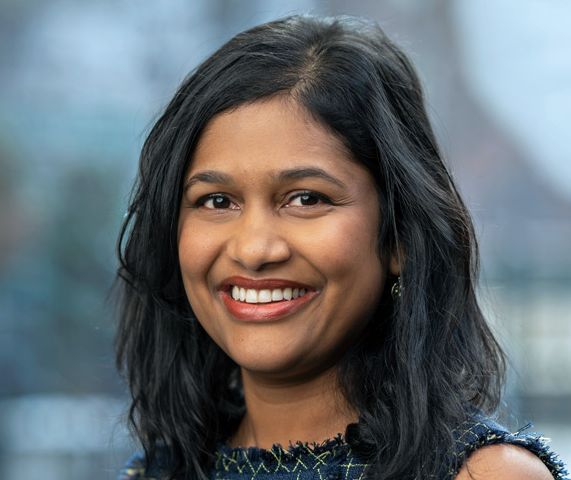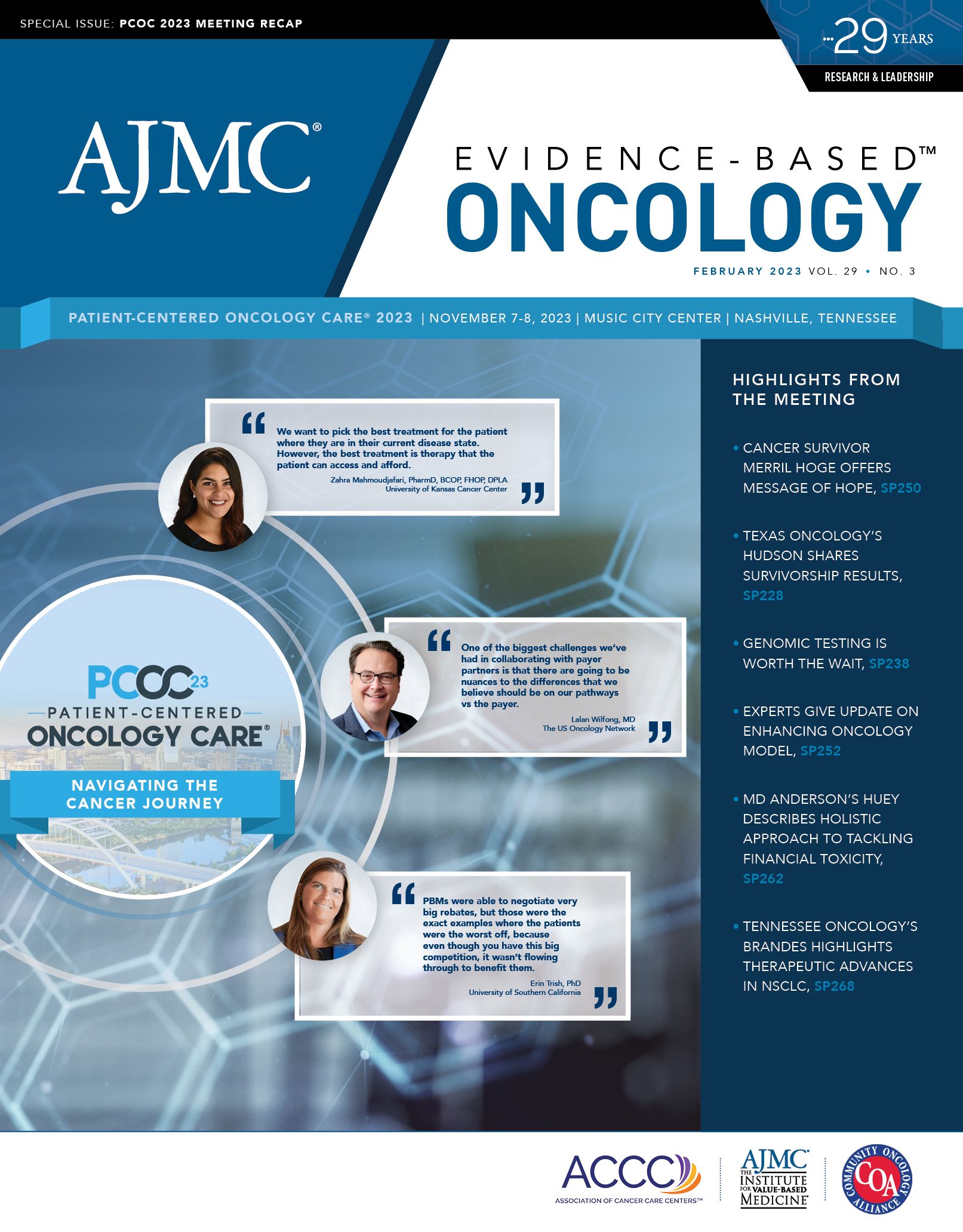- Center on Health Equity & Access
- Clinical
- Health Care Cost
- Health Care Delivery
- Insurance
- Policy
- Technology
- Value-Based Care
Samyukta Mullangi, MD, MBA, Discusses Leveraging Technology Intelligently in Oncology Care
From an interview conducted during Patient-Centered Oncology Care 2023.
Samyukta Mulllangi, MD, MBA | Image: Tennessee Oncology

Samyukta Mullangi, MD, MBA, medical director of oncology at Thyme Care and medical oncologist at Tennessee Oncology, highlights for Evidence-Based Oncology (EBO) the key points from her remarks during the first panel of the Patient-Centered Oncology Care 2023 meeting, “Building Trust: Tools and Strategies for Patient Engagement.”
EBO: What were some of the major points discussed in your panel on building patient trust and engagement?
Mullangi: Some of the things that we talked about today [were]: How do you engender patient trust in an oncology context? How do you assure that you’re meeting the needs of a culturally diverse population? And how do you either match the health care workforce to reflect those demographics or use other strategies and tools to try and meet those types of needs? How do you stay connected outside just that brief clinic encounter and what are ways in which technology can extend the reach of a clinic visit by engaging patients on a more continuous basis between visits as a way to build trust and effective patient engagement? And what are shortcomings of a technology-based solution and how are ways in which humans can be a part of that such that this is truly a dynamic solution that can cater to a wide demographic, not all of whom are very tech savvy?
EBO: With the different perspectives of each panelist, was there anything that came out of the conversation that surprised you?
Mullangi: I think we heard some really diverse perspectives because we had somebody from American Oncology Network, which is a large provider practice; we had somebody from Anthem, which is a health insurer; and then myself representing both a provider as well as a technology-based start-up.
I think something that kind of surprised me actually was that we spoke a fair bit about solutions that did not necessarily leverage technology, and I think it just shows that no matter how more digitally enabled health care becomes, there’s still such a human component to it. All of our solutions and strategies really kind of based that encounter on a patient interacting with a person, and I think that’s probably the right thing to keep that in mind as sort of the heart and soul of medicine.
But I am biased, I do think that technology can really augment and potentiate that encounter, so that was hopefully something that I brought to the table, which is that emphasis that we can really make it a much more seamless, connected encounter by leveraging technology intelligently.

Oncology Onward: A Conversation With Penn Medicine's Dr Justin Bekelman
December 19th 2023Justin Bekelman, MD, director of the Penn Center for Cancer Care Innovation, sat with our hosts Emeline Aviki, MD, MBA, and Stephen Schleicher, MD, MBA, for our final episode of 2023 to discuss the importance of collaboration between academic medicine and community oncology and testing innovative cancer care delivery in these settings.
Listen
